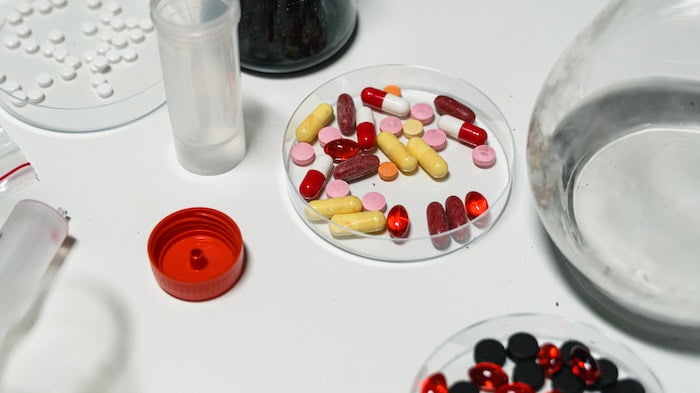Drug & Alcohol Rehab in Malvern
If you’re ready to heal from addiction once and for all, attending drug and alcohol rehab in Malvern will give you the tools and support that you need to recover.
For more information about drug and alcohol rehab in Malvern, contact us today at 0800 088 66 86.
Is Drug & Alcohol Rehab in Malvern Right for Me?

Choosing to enter addiction treatment is a big step, and it’s normal to second-guess your decision.
You may begin to think that it’s too extreme, or that you aren’t ‘sick’ enough to warrant this type of treatment.
These thoughts can make it more difficult to seek help, so it’s important to get some clarity on the situation.
If you are wondering whether drug and alcohol rehab in Malvern is right for you, ask yourself the following questions:
- Are your friends and family members expressing concern about your substance use?
- Have you missed work or school due to your substance use?
- Do you experience cravings for drugs or alcohol when you are not using them?
- Do you go through drug or alcohol withdrawals if you try to cut down?
- Have you tried to reduce or stop your drug or alcohol use but started using them again?
- Do you prioritise substance use over your responsibilities?
- Are you dishonest or evasive about your substance use to others?
- Do you find it difficult to imagine life without drugs or alcohol?
- Have you put yourself or others in danger due to your substance use?
- Has your substance use had a negative impact on your life?
- Do you use drugs or alcohol at inappropriate times, such as at work or before driving?
- Do you find it difficult to start or end your day without drugs or alcohol?
If you answered ‘yes’ to several of these questions then it is likely that you will benefit from addiction treatment in a professional environment. [1]
If you need more guidance and advice before making a decision, we encourage you to call Rehab Recovery on 0800 088 6686 for an impartial and non-judgemental chat.
How Long Does Drug & Alcohol Rehab in Malvern Last?
Depending on your budget and circumstances, you can usually stay at rehab for as long as you want.
Most people who enter residential drug and alcohol rehab in Malvern can choose between three programmes – 30 days, 60 days or 90 days.
All programmes include a medical detox, at least three weeks of counselling and relapse prevention.
The main differences between the programmes are obviously the amount of time you spend in treatment and the amount of counselling you receive.
We would usually recommend someone with a severe and long-term addiction to choose one of the longer programmes, particularly if you are addicted to a substance such as heroin which can be extremely difficult to recover from.
Speak to staff at your chosen rehab clinic for their opinion on how long you should spend at rehab.
For more information about drug and alcohol rehab in Malvern, contact us today at 0800 088 66 86.
How Much Does Drug & Alcohol Rehab in Malvern Cost?

The current cost of living crisis in the UK has pushed addiction treatment even further out of reach for many people, but it is still possible to access affordable drug and alcohol rehab in Malvern.
The average cost of residential rehab is around £500 per day. This means that a 30-day stay would cost around £15,000, a 60-day stay would cost around £30,000 and a 90-day stay would cost around £45,000.
A 10-day supervised home detox programme can cost between £1,500 and £2,500, making it a more affordable option for many people, particularly when combined with NHS-funded counselling.
In Malvern, it may be possible to access treatment for as little as £1,000 a week or as much as £100,000 for a 30-day programme.
You may qualify for NHS-funded rehab if you are unable to afford drug and alcohol rehab, but there is a lot of competition each year for very few spaces.
Speak to your doctor for assistance with applying for NHS-funded rehab if you believe you will meet the criteria.
How to Find & Access Drug & Alcohol Rehab in Malvern

Finding a rehab clinic may not be as difficult as you imagine.
There are several ways that you can find and access drug and alcohol rehab in Malvern including a referral from a doctor, researching on the internet or speaking to the Rehab Recovery team.
Your doctor may be your first point of call once you have decided that you need to change your relationship with substances.
They will be able to diagnose you and refer you to a suitable clinic or outpatient programme. They may also be able to assist in helping you to access NHS-funded rehab if you qualify.
You can also research rehab clinics in Malvern on the internet to find one that is right for you – most rehabs will let you visit before you make a decision.
Finally, you can call Rehab Recovery on 0800 088 6686 for advice and guidance.
This can be a less intimidating option if you do not feel comfortable with the idea of speaking to your doctor.
We can provide an assessment over the phone and refer you to a suitable drug and alcohol rehab in Malvern, as well as give advice and guidance as you navigate the start of your recovery journey.
Choosing Between Inpatient Rehab & Outpatient Rehab
Your rehab experience may look very different to someone else’s, which is often down to whether you choose inpatient rehab or outpatient drug and alcohol rehab in Malvern.
1. Inpatient rehab
Also known as residential rehab, this is the form of addiction treatment that is most commonly portrayed in the media.
At inpatient rehab, you will live at the clinic while you recover, alongside other patients who are doing the same thing.
This means you will be constantly supervised, have no access to substances and will be completely removed from your former living environment.
It can help you to entirely focus on your recovery and build strong friendships with other people who are going through the same thing as you.
2. Outpatient rehab
If you would benefit from living at home while attending rehab in order to continue working or looking after your family, outpatient rehab may be right for you.
As an outpatient you will attend rehab part-time, usually beginning with 5-6 days per week before gradually cutting down as you progress through your treatment programme. [2]
Outpatient rehab is usually more affordable than inpatient rehab and also allows you to keep working throughout your treatment.
It is not recommended for those with a severe and long-term addiction, as you will not be monitored 24/7 and will potentially have access to substances during this time.
For more information about drug and alcohol rehab in Malvern, contact us today at 0800 088 66 86.
How Does a Medical Detox Work at Drug & Alcohol Rehab?

A detox is a crucial part of addiction treatment. It can help you to heal from the physical side of addiction and get you out of the danger zone.
Most people will not be advised to completely stop their substance use. Instead, you will be given a detox plan that will help you to slowly cut down over 7-10 days.
This can help you to avoid more severe withdrawal symptoms and keep you safe.
If you are concerned about the safety of detox, don’t worry – at rehab, you will be monitored constantly throughout the process. You should only ever attempt a detox under medical supervision.
Common drug and alcohol withdrawal symptoms include:
Severe drug and alcohol withdrawal symptoms include:
- Paranoia
- Hallucinations
- Extreme confusion
- Convulsions
- Seizure
- Unconsciousness
You may also be prescribed certain medications to help you get through the detox process more comfortably.
Once the detox is complete, you will be ready for addiction counselling.
How Does Addiction Counselling Work at Rehab?

Counselling is an important part of the rehab process. It can help you to process traumatic events, manage and self-regulate your emotions and develop healthy behaviours to replace any self-destructive ones.
While some forms of counselling such as cognitive behavioural therapy (CBT) work in various situations, others such as equine therapy or music therapy will usually benefit a specific type of person.
Therefore, it is important to choose a rehab clinic that offers a wide range of therapy treatments.
You may be offered some of the following types of therapy at drug and alcohol rehab in Malvern:
- Individual therapy
- Group therapy
- Family therapy
- Cognitive behavioural therapy (CBT)
- Dialectical behaviour therapy (DBT) [3]
- Holistic and alternative therapies
- Trauma-focused therapy
- Eye movement desensitisation and reprocessing therapy (EMDR)
- 12-Step facilitation therapy (TSF)
- Codependency therapy
- Motivational interviewing
- Acceptance and commitment therapy (ACT)
- Motivation enhancement therapy (MET)
It can take some time to develop a bond with your counsellor at rehab, but after a while, you should feel more comfortable with them and be able to open up.
For more information about drug and alcohol rehab in Malvern, contact us today at 0800 088 66 86.
Can I Leave Rehab Before my Treatment Programme Ends?
Are you worried about the possibility of being held at rehab against your will?
If you are an adult, you will be able to leave drug and alcohol treatment whenever you want. The staff cannot legally confine you there and you will be free to walk away at any point.
However, it is recommended that you stay for the entirety of your treatment programme for the best results.
If you want to leave rehab early, take some time to think about the reasons.
Many issues can be resolved easily if you are able to communicate your feelings. Are you struggling to connect with your counsellor, feeling ill due to the detox process or simply feeling out of place?
These are all valid reasons for wanting to go home, but if you speak up then changes can be made to support you and help you to complete your treatment programme.
You are more likely to achieve long-term recovery and sobriety if you stay for the entire programme including detox, counselling and relapse prevention.
What are the Long-Term Risks of Addiction?
The consequences of a drug or alcohol addiction can span your entire lifetime if you do not seek treatment, and may even end your life prematurely.
As well as the constant risk of overdose, you will be more susceptible to developing a range of physical and mental illnesses alongside other issues such as debt and unemployment. [4]
Some of the long-term risks of addiction include:
- Damaged relationships with family and friends
- Loss of employment
- Debt and other financial troubles
- Legal issues including a potential prison sentence
- Higher risk of unplanned pregnancies and contracting a sexually transmitted infection
- Higher risk of contracting a blood-borne disease such as hepatitis or HIV
- Higher risk of developing a physical health condition such as heart issues, liver damage, kidney damage and certain types of cancer
- Higher risk of developing or worsening a mental health condition such as anxiety, depression or schizophrenia
- Increased chance of infertility
You can avoid many if not all of the above consequences when you seek professional treatment for your addiction as early as possible.
For more information about drug and alcohol rehab in Malvern, contact us today at 0800 088 66 86.
Is it Possible to Become Addicted to Prescription Medication?

A common misconception surrounding prescription medication is that it is completely safe. After all, it has been prescribed by a doctor.
The truth is that prescription medications are some of the most dangerous and addictive substances available. If they were safe, you would be able to purchase them over the counter.
So yes, it is possible to become addicted to prescription medication. In fact, it is fairly common.
Some of the most addictive prescription medications include:
- Codeine
- Co-codamol
- Tramadol
- Oxycodone
- Hydrocodone
- Fentanyl
Many rehabs offer specialised support and treatment for prescription medication addiction, helping patients to safely detox from these substances and receive effective counselling.
You may be concerned about becoming addicted to the medications that you are prescribed while at drug and alcohol rehab in Malvern.
Try not to worry – your doctor and medical team will have a plan to support you, reducing the chance of developing an addiction to these medications.
Which Aftercare & Support Services are Available After Drug & Alcohol Rehab in Malvern?

Leaving rehab can be scary, but knowing that you have a plan will help you to feel more prepared for the outside world.
Malvern residents are fortunate enough to have access to a wide range of aftercare and support services.
Alcoholics Anonymous and Narcotics Anonymous are two of the most popular support groups available worldwide.
Members meet regularly to share advice and personal stories, and many people find that providing and receiving support from these meetings can help them to continue their recovery.
You may also want to build on the work you did at rehab by attending ongoing counselling sessions.
These may be private or NHS-funded and will allow you to continue developing your new skills and techniques while understanding more about how your mind works.
SMART Recovery is another resource that can help you to continue your hard work and receive ongoing support.
Many rehab clinics run alumni programmes for former patients to regularly meet and reflect on their recovery. It’s also a great way to stay in touch with other people and build a supportive community.
For more information about drug and alcohol rehab in Malvern, contact us today at 0800 088 66 86.
How Can I Best Take Care of Myself After Rehab Ends?

You may have spent the past 30, 60 or even 90 days in a drug and alcohol rehab in Malvern, following instructions from staff and being cared for in a medical environment.
The thought of re-entering the world can be intimidating, as it will be up to you to continue your recovery.
Thankfully, there are many actions that you can take to care for yourself after rehab ends.
1. Get involved with support services
The resources listed earlier in this article can all be beneficial in assisting with long-term recovery.
Loneliness and isolation have been found to be two of the biggest reasons people relapse, and getting involved with aftercare and support services in your area will help to counteract that.
2. Eat a healthy diet
Addiction can take a toll on your body, particularly when it is severe and long-term.
Making sure to eat a varied and nutritious diet filled with healthy foods will help your body to heal and recover.
3. Get enough sleep
Sleeping is another great way that your body heals itself.
Getting enough sleep can also help to regulate your brain and make it easier to make good decisions, such as avoiding substances.
4. Exercise regularly
If you’re concerned about feeling anxious or depressed after leaving rehab, find a form of exercise you like and stick with it regularly.
Exercise has been proven to lift your mood, make you feel happier, and is also good for your body.
5. Build a supportive community
Having people to talk to about your feelings, experiences and memories can make it much easier to regulate your emotions and continue with your recovery.
Get involved in support groups, find a sponsor and spend time with people who share similar experiences and recovery goals.
6. Prioritise your recovery
Putting your recovery and sobriety first is one of the key ways to experience success after leaving rehab.
This will help you to consistently make decisions that benefit you and your goals and will assist you in staying on the right track.
Get Help Today

For more information about drug and alcohol rehab in Malvern, contact us today at 0800 088 66 86.
References
[1] https://www.ihs.gov/asap/familyfriends/warningsignsdrug/
[2] https://www.ncbi.nlm.nih.gov/pmc/articles/PMC4152944/
[3] https://ce-classes.com/exam_format/Dialectical-Behavior-Therapy-for-Substance-Abusers.pdf


